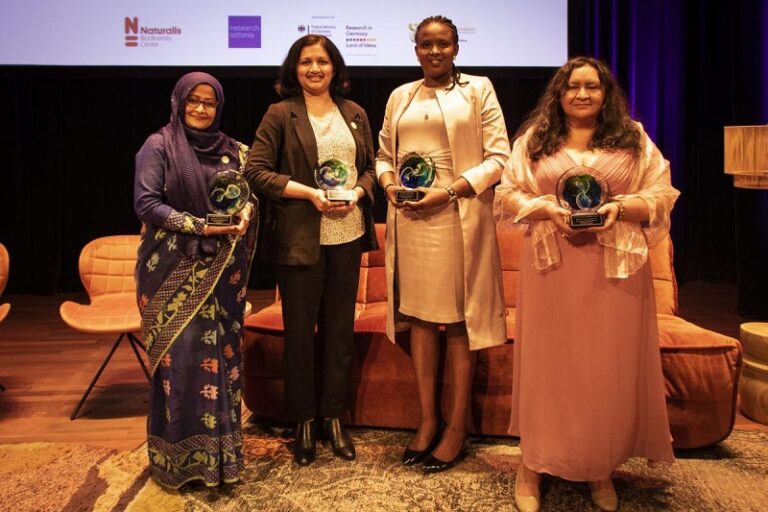Deadline: October 8, 2023
Applications are open for the OWSD-Elsevier Foundation Awards 2024 for Early-career Women Scientists. These awards reward and encourage women scientists working and living in eligible developing countries who are in the early stages of their careers, having often overcome great challenges to achieve research excellence.
From 2022 to 2026, the awards will respond to the call for action set forth by the United Nations Sustainable Development Goals (SDGs). The 2024 Awards are being given in the area of water, sanitation and hygiene (SDG6).
Awards
- Cash prize of USD $5,000.
- All-expenses-paid trip to attend a relevant international conference.
The 5 awards will be distributed as follows: one for each of the four regions of the developing world (Africa, Arab region, Asia & the Pacific and Latin America & the Caribbean), plus an additional ¨floating” award for an outstanding candidate from any of these regions.
Eligibility
- The applicant must be a woman who has received her PhD in a scientific discipline within the previous ten years and whose current scientific research is related to the area of water, sanitation and hygiene.
- In addition, the applicant must have lived and worked for at least 5 of the last 15 years* in one of the 66 scientifically and technologically lagging countries (STLCs) listed here:
- Africa: Angola, Benin, Burkina Faso, Burundi, Cameroon, Central African Republic, Chad, Comoros, Congo, Côte d’Ivoire, Dem. Rep. Congo, Equatorial Guinea, Eritrea, Ethiopia, Gambia, Ghana, Guinea, Guinea-Bissau, Kenya, Lesotho, Liberia, Madagascar, Malawi, Mali, Mauritania, Mozambique, Niger, Rwanda, Sao Tome and Principe, Senegal, Sierra Leone, Somalia, South Sudan, Swaziland, Tanzania, Togo, Uganda, Zambia, Zimbabwe.
- Arab Region: Djibouti, Palestine (West Bank & Gaza Strip), Sudan, Syrian Arab Republic, Yemen.
- Asia & Pacific: Afghanistan, Bangladesh, Bhutan, Cambodia, Kiribati, Lao People’s Dem. Rep., Mongolia, Myanmar, Nepal, Solomon Islands, Sri Lanka, Tajikistan, Timor-Leste, Tuvalu, Vanuatu.
- Latin America & Caribbean: Bolivia, El Salvador, Guatemala, Haiti, Honduras, Nicaragua, Paraguay.
*Please note:
- The 5 years of residence in the eligible country do not have to be consecutive.
- Applicants can be citizens of any country, provided that they fulfil the above residence requirement.
Eligible STEM Fields
- Agricultural Sciences
- Astronomy, Space and Earth Sciences
- Biological Systems and Organisms
- Chemical Sciences
- Computing and Information Technology
- Engineering Sciences
- Mathematical Sciences
- Medical and Health Sciences (including Neurosciences)
- Physics
- Structural, Cell and Molecular Biology
Any combination of these fields (i.e. interdisciplinarity) is acceptable.
Application
Applications must be made online, in English, and must include:
- Official documentation proving 5 years’ residency in an eligible STLC .
- The following documents can be submitted as proof of residence as long as the name of the applicant (as written in the online form) appears clearly: statement from the local police office or municipality, population registry office, rental agreement, utilities bills, employment contract. This list is not exhaustive and alternative documents can be considered. Write to [email protected] if you are not sure about the eligibility of your documents.
- Evidence on how your research contributes to advancing the SDG6 (Clean water and sanitation).
- Short biography of approximately 350 words describing your journey to become an outstanding scientist (for ease, they recommend that you prepare this beforehand and copy-paste into the text box)
- PhD certificate
- Curriculum vitae
- Full list of publications
- At least 2 reference letters (reference letters must be prepared on official letterhead and should be written and signed by senior scientists familiar with your research)
For more information, visit OWSD-Elsevier Foundation Awards.

